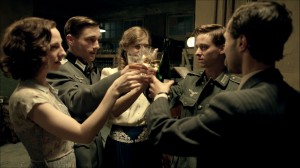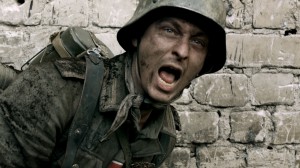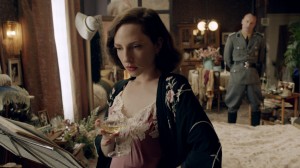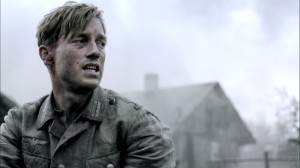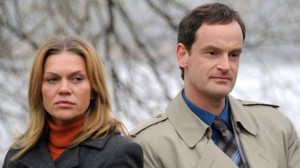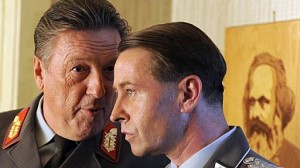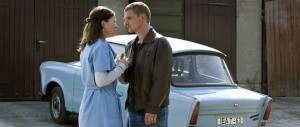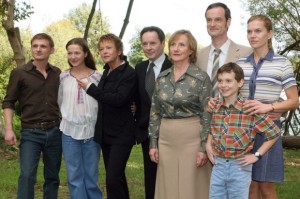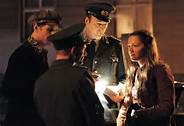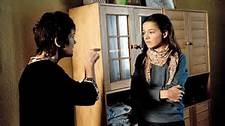It was easy to miss the week-long run of GENERATION WAR. It screened for a week at Embarcadero and then no place else in the Bay Area. For the US release by Music Box, the hugely successful TV (ZDF) mini series, originally called Our Mothers, Our Fathers, was edited into a 2 part 280 min-long film. A war movie with all the great production values we are used to by now; perhaps with the “best representation of close combat ever filmed” says David Denby of the New Yorker. We follow five young Germans, 2 brothers fighting in the Wehrmacht, a nurse, an aspiring singer, and her Jewish lover, through 4 years of war and witness how they are brutalized by what the war on the Eastern front and the Nazis put them through. Three of them survive, including the Jew. A WW2 film trying to give a collective portrait of a generation, highly acclaimed by the German media for opening up a dialog between old and young about accountability and forgiveness. I hope it did. I would have preferred a documentary addressing these issues that are so painful, so complex, so explosive that it calls for much more than a popular melodrama like approach. The film includes every possible horror of the war, from close combat to executions, hangings, betrayals, to partisan cruelties and field hospitals with lots of screaming and blood. Nothing has been left out – except concentration camps. The 5 protagonists celebrate in Berlin the night before leaving for the front and we know that at least a few will survive and come back to that same bar, changed and in rubble. On the vast Eastern front they keep bumping into each other. The brothers, one a bookish war hater turns into a killer, whereas the responsible, stern lieutenant becomes a deserter. The young Jew hides in the woods with Jew-hating Polish partisans and survives against all odds – it makes for good story, but we don’t get much inside into the only Jewish character in the film. The roles of the two women, a naive nurse that for no apparent reason betrays a Jewish doctor urgently needed at the front, and the singer, carrying on with an SS officer to save her Jewish lover and advance her career, are bordering on trite stereotypes. Five hours of too much that left me with too little.
Very different is WEISSENSEE, a TV (ARD) series of 12 episodes. 45 min ea. that premiered in 2010.
An East-Berlin love story, taking place around 1980 and flavored with everything we know from The Lives of Others, focuses on two families at the opposite end of the political scope. The Kupfers main players are the father (Uwe Kockisch) belonging to the old Stasi bosses who wanted to change society for the better. His two sons, the older (Jörg Hartmann) following the party line faithfully not because his father knows Honecker, but because he is overly ambitious and can’t deal with failure. In different times he would have made a great bank manager. The younger brother (Florian Lukas), a police man (VoPo), has no intention to rise in his job except into the arms of his lover (Hannah Herzsprung), who belongs to the Hausmann family on the other side of the fence. Her mother (Katrin Sass), a wonderful Lieder-singer, who like many of the GDR Liedermachers in the late seventies (Wolf Biermann comes to mind) openly critiques the system. With a rebellious daughter who is in love with the son and brother of party bosses, with performing anti-regime songs and a former love affair with the father of her daughter’s lover, the question is, how will she and her daughter have to pay for it all. Like Generation War, the story depends on conventions of popular melodrama – a Romeo/Julia love story, contrasting brothers, a singer, betrayal, pregnancy, spying, murder, prison, forgiveness – but no painful clichés, no obvious good guys versus bad guys, all characters, even the party-faithfuls, do not come across as creations of a smart script writer, but as humans who, under pressure, do not resist the temptation to be human. Once you start watching, you can’t stop. Too bad that this series has not made it to the big screen in the US.

